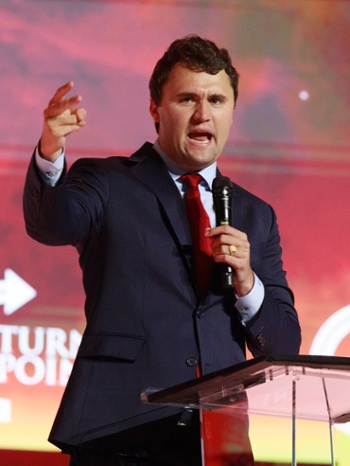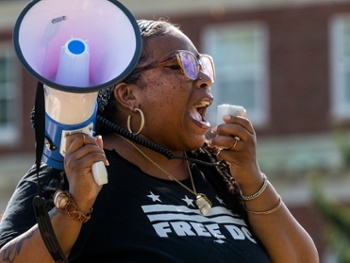|
|
| News & ideas for college & university leaders | SIGN UP ⋅ SHARE |
|
|
 
|
Hello!
Today, we take a deep dive into student experience, looking at how politics affects their choices. We also look at
- The rise of the video essay in admissions
- Insight from a former provost
- A record-breaking pizza party
|
|
|
 | Sales Reimagined: Delivering Real Impact
AI is changing sales. Join leaders from BCG, Slack, Salesforce, and Workday on Oct. 7 at 3PM EST for a fireside chat on how to navigate the agentic era and reshape your sales teams for the future. Discover how to embed AI across the sales experience and lead hybrid teams of human talent augmented by digital agents. Register now to learn how to drive tangible impact and prepare your sales organization for what's next. |
|---|
| |
|
|
 
|
News of the day
| |
 |
| (Bloomberg/Getty Images) |
Colleges are navigating the challenge of institutional neutrality after the recent killing of conservative activist Charlie Kirk at Utah Valley University. While many institutions adopted neutrality policies following the Oct. 7, 2023, Hamas attack and Israel's response, the incident has prompted some presidents to issue statements condemning political violence. The University of Wyoming and Middlebury College are among those who have spoken out, emphasizing the importance of academic freedom and respectful discourse. Meanwhile, some universities have taken disciplinary actions against faculty and staff for their reactions to Kirk's death, raising concerns about free speech and the extent of First Amendment protections.
|
|
|
|  |
 
|
Deep Dive
| |
 |
| (Jim Watson/Getty Images) |
College students are willing to pay more than $2,000 in tuition to attend colleges where the student body shares their political beliefs, a study published by EdWorkingPapers and the IZA Institute for Labor Economics indicates. The study finds that liberal students would pay $2,617 more to avoid conservative peers, while conservative students would pay $2,201 more to avoid liberal peers. The study also finds that colleges have become more polarized over the past 40 years, with liberal colleges becoming more liberal and conservative colleges becoming more conservative.
|
|
|
|
Free eBooks and Resources
|
 
|
Leadership & Best Practices
| |
 |
| (Jon Cherry/Getty Images) |
Julian Vasquez Heilig, former provost at Western Michigan University in Kalamazoo, describes the core challenges of the provost role, including being held accountable for student outcomes and academic quality without direct control over funding or resources. He highlights the difficulty of innovating in a position where authority is fragmented across various stakeholders — president, trustees, faculty and other vice presidents — making it hard to drive lasting change. The lack of structural support and clear authority, combined with high expectations, leads to isolation and frequent burnout, with most provosts serving shorter tenures than the time required for substantive transformation.
|
|
|
|
Admissions & Enrollment
|
Colleges and universities are increasingly allowing applicants to submit video essays to counter the rise of AI-generated written essays, with institutions like Brown University, Duke University and the University of Chicago embracing the trend. Proponents argue that video essays provide a more authentic representation of applicants. Still, critics contend that they may favor wealthy students who can afford professional production and coaching, potentially exacerbating inequities in the admissions process.
|
|
| Are you using video essays? |
| | | | | |
